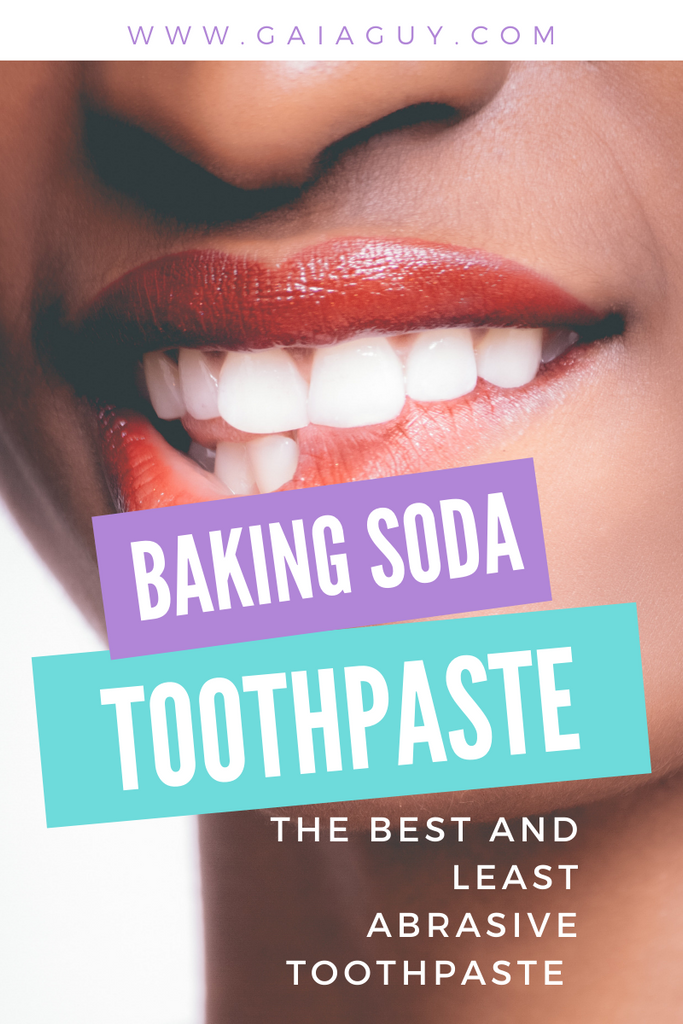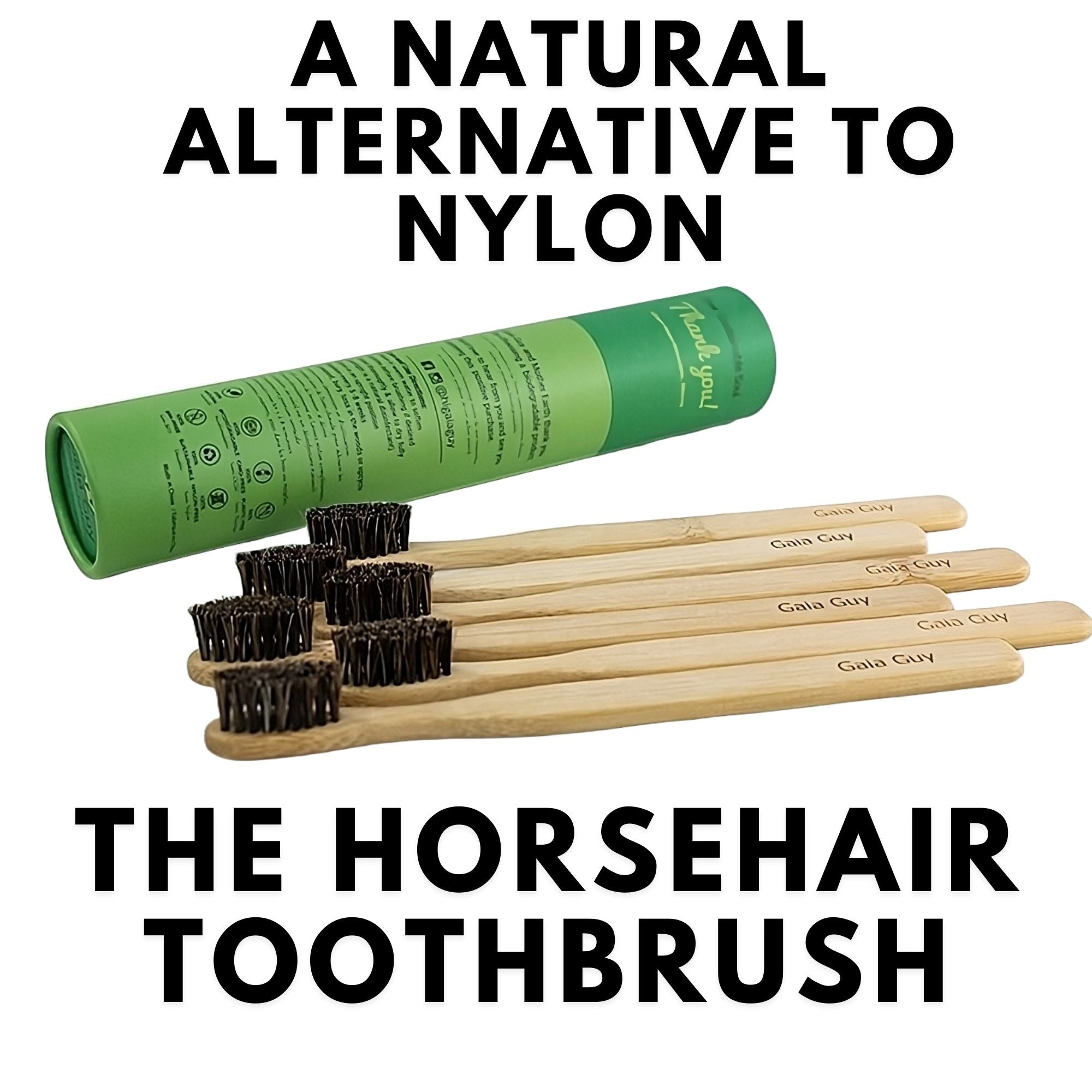
A quick search of using baking soda as a toothpaste will bring up some facts mixed with a bit of BS.
Sodium Bicarbonate aka Baking Soda is actually very, very low on the abrasive scale. Check the chart below.
Your fact finding mission on google may lead you to believe that using baking soda on the regular would be too abrasive.
Shockingly it is much less abrasive than everything except just using water. Even natural toothpastes and popular brands that add sodium bicarbonate come up much higher on the Relative Dentin Abrasive (RDA) value.

The false claim that baking soda is more abrasive than other natural toothpaste ingredients is a persistent "I saw it on the internet fact", which I hope you will help squash by pining, posting and sharing this article far and wide.
Let's look at some scientific studies to see all the marvelous benefits of using baking soda toothpaste.
One more important thing to remember that this is using just baking soda and no apple cider vinegar or another acidic materials. These acids will have some whitening benefits but can cause enamel damage and tooth erosion!
Is Baking Soda Toothpaste Safe?
First up we should tackle the abrasion and tooth enamel claims as I'm sure many might not be convinced.
Given the readings above it can be seen that baking soda has an intrinsic low-abrasive nature because of its comparatively lower hardness in relation to enamel and dentin. NOTE: Commercial baking soda toothpastes may contain other ingredients, which can increase their stain removal effectiveness and therefore abrasiveness. PubMed
What about plaque and gingivitis?
After 6 months of study it was found that participants using a fluoride-based baking soda significantly reduced the Gingival Index (MGI), Gingival Bleeding Index (GBI), and Plaque Index (PI).
The toothpaste with 35% baking soda proved more effective than the 20% one. Baking soda does help reduce plaque, gingival inflammation and bleeding more effectively than regular fluoride toothpaste. PubMed
Another study used a 67% concentration of baking soda as a toothpaste showed
This 67% sodium bicarbonate toothpaste provided statistically significant improvements in gingival health and bleeding after 6 weeks of use. PubMed
Here is an important study that compares effectiveness in reducing plaque of a fluoride dentifrice (ie toothpaste) containing baking soda and a non-baking soda fluoride toothpaste containing an antimicrobial (triclosan/copolymer).
Triclosan is used in many products like toothpaste and may be an endocrine disruptor!
Another win for the best natural toothpaste baking soda.
The study shows that baking soda toothpaste was more effective than the non-baking soda, antimicrobial dentifrice in plaque removal after a single brushing.
Furthermore the sodium bicarbonate worked better at maintaining significantly lower plaque levels during a four-week period of twice daily brushing. PubMed
Can baking soda whiten your teeth?
Yes, baking soda removes the surface discoloration from your teeth. It can help with coffee stains and even smoking stains. Allow up to 6 weeks to see a difference. JADA
There you have it. Get baking soda and make some baking soda toothpaste today. Just get a small dish, add baking soda, wet your biodegradable toothbrush and mix into a thick paste.
Baking soda is an amazing alternative to regular toothpastes. Never worry about scratching away your tooth enamel with abrasive toothpastes anymore.
A further bonus is that you are not using Sodium Lauryl Sulfate or even other detergents, most commonly cocamidopropyl betaine (CAPB).
What's the big deal? Well it turns out canker sores seem to strike people more often and last longer when using an Sodium Lauryl Sulfate (SLS) toothpaste or even the CAPB toothpaste.
How does this translate out into canker sore frequency? A randomized, double-blind, crossover study investigated the effect of toothpastes containing SLS, CAPB, or no detergent at all. The researchers found “significantly higher frequency” of canker sores when patients brushed with SLS-containing toothpastes rather than with non-SLS toothpastes, whether CAPB-containing or detergent-free, so they suggest that an “SLS-free toothpaste may thus be recommended for patients with recurrent aphthous ulcers,” canker sores. Nutrition Facts










